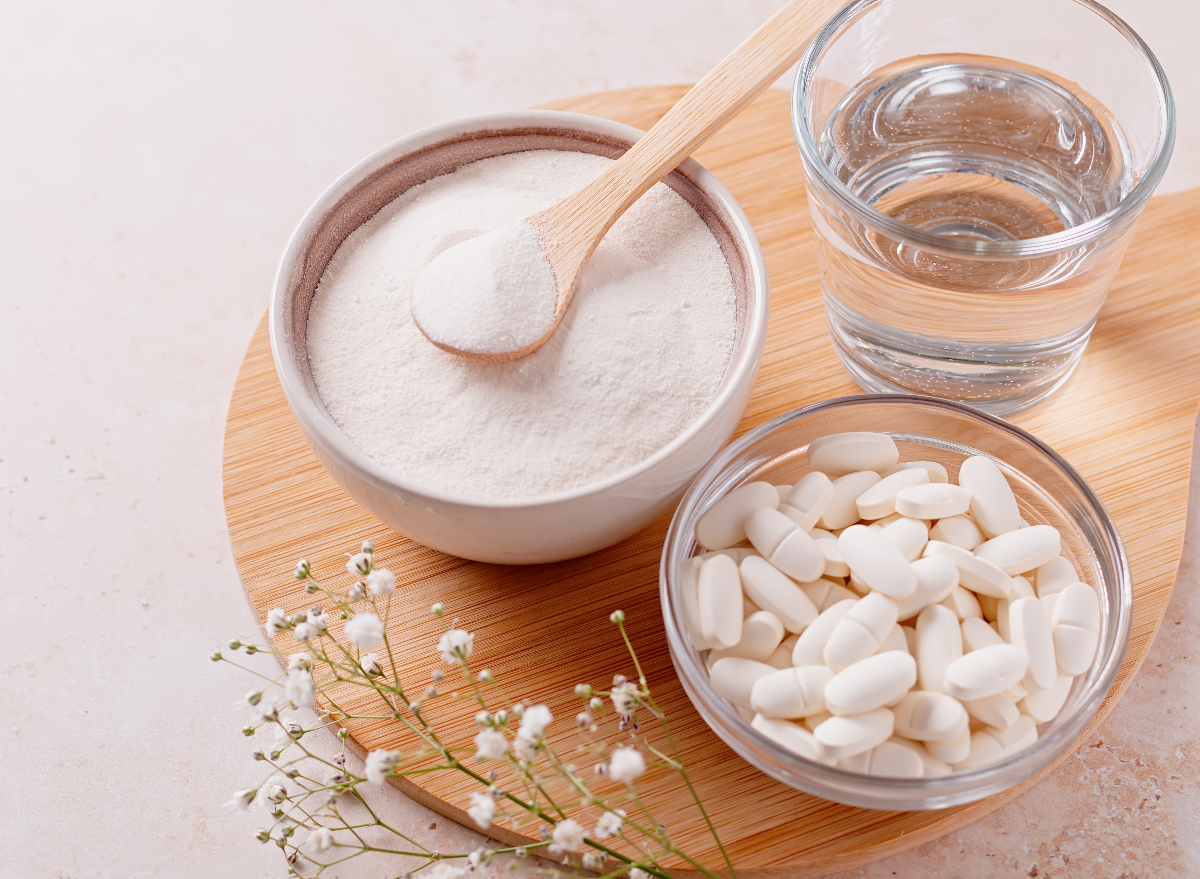One Major Effect of Taking Collagen Supplements, Says Dietitian

There always seems to be someone talking about collagen. People sell it in face moisturizers, protein powders, soups, and even coffee creamers! But the question is, are there health benefits to collagen, or is it just a bunch of hype?
To find out more about the benefits of taking collagen supplements, we talked to Amy Goodson, MS, RD, CSSD, LD, author of The Sports Nutrition Playbook and member of our medical expert board, who points out that the one major effect of taking collagen supplements is that they can actually improve your skin health!
What is collagen?
“Collagen is a major protein your body produces that is a part of your skin, ligaments, tendons, and muscles,” says Goodson. “It plays a role in strengthening your skin while benefitting elasticity and hydration.”
According to the Harvard School of Public Health, your body’s production of collagen is also responsible for creating and maintaining the health of your connective tissues. While your body works hard to produce collagen on its own, its levels do decrease with each passing year.
“As we age our body naturally produces less collagen, which over time can contribute to dry skin, wrinkles, and less skin elasticity,” says Goodson.
How do we get more collagen?
As many people age and begin losing natural collagen from their bodies, they may decide to increase their intake of it. Here are some common ways you can incorporate more collagen into your daily life.
Collagen-rich foods
According to Harvard, we can get more collagen by consuming certain animal products—specifically foods that contain connective tissue of their own, like chicken, fish, pork, and beef. Some foods are even considered better than collagen supplements!
Although collagen isn’t found naturally in plant-based products, there are certain foods that can help boost your body’s production of collagen.
For example, a study published in the Journal of Lifestyle Medicine reported that your body needs vitamin C to produce collagen, which can be found in foods like kale, broccoli, oranges, and strawberries.
Along with vitamin C, your body needs zinc to produce collagen as well. You can find zinc in foods like oysters, oatmeal, lobster, beef liver, cashews, and chickpeas.
Collagen supplements
It is common to see companies selling face creams and lotions with collagen as the main ingredient, but this has actually been proven to be fairly ineffective by dermatologists because collagen is found in the layers of your skin, not the surface.
Instead, collagen supplements in the form of pills or powder are known to help your body fight aging and increase skin elasticity.
According to a study from Nutrients, participants saw significant improvement in their skin’s hydration, elasticity, and smoothness after consuming a liquid collagen supplement for 12 weeks.
“The wrinkle-reducing benefits of collagen supplements have been attributed to their ability to stimulate your body to produce more collagen on its own,” says Goodson. “It’s not to say if you take collagen you won’t have wrinkles, but it sure might help!”
For even more healthy tips, read these next:








